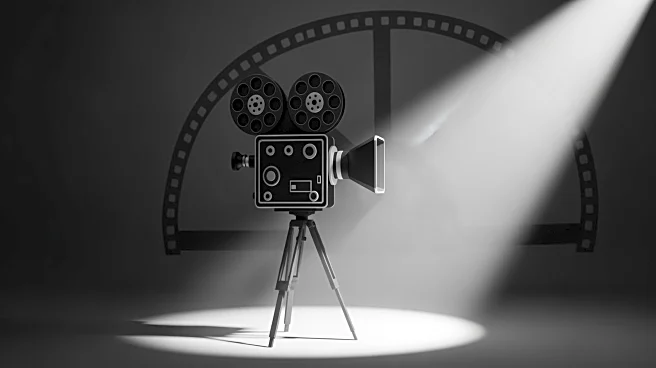What's Happening?
A new documentary by Andres Veiel, titled 'Riefenstahl,' explores the controversial legacy of Leni Riefenstahl, a filmmaker known for her work during the Nazi era. The documentary delves into Riefenstahl's
films, such as 'Olympia' and 'Triumph of the Will,' which are often cited for their technical brilliance but also criticized for their propagandistic content. Veiel's film investigates Riefenstahl's claims of being an apolitical artist and examines her close ties to Adolf Hitler and the Nazi regime. The documentary utilizes previously unreleased materials from Riefenstahl's estate, including letters and recordings, to provide a comprehensive look at her life and work.
Why It's Important?
The documentary sheds light on the complex relationship between art and politics, particularly how Riefenstahl's work contributed to the Nazi propaganda machine. Her films are still studied in cinema classes for their innovative techniques, yet they also serve as a reminder of how art can be manipulated to serve authoritarian regimes. This exploration is significant in understanding the seductive power of fascist imagery and its potential to influence public perception. The film prompts a reevaluation of Riefenstahl's legacy and the ethical responsibilities of artists in politically charged environments.
What's Next?
The release of 'Riefenstahl' is likely to spark renewed debate among historians, filmmakers, and the public about the role of art in society and its potential to influence political ideologies. Film scholars may revisit Riefenstahl's work with a more critical eye, considering the ethical implications of her contributions to Nazi propaganda. Additionally, the documentary could lead to discussions about how modern media can similarly be used to sway public opinion and the importance of critical media literacy.
Beyond the Headlines
The documentary raises questions about the long-term impact of Riefenstahl's aesthetic ideals, which have persisted in popular culture under the guise of beauty and athleticism. It also highlights the dangers of glorifying certain body ideals and the potential for such imagery to perpetuate exclusionary and harmful ideologies. Veiel's work serves as a cautionary tale about the allure of authoritarianism and the subtle ways it can infiltrate cultural expressions.











